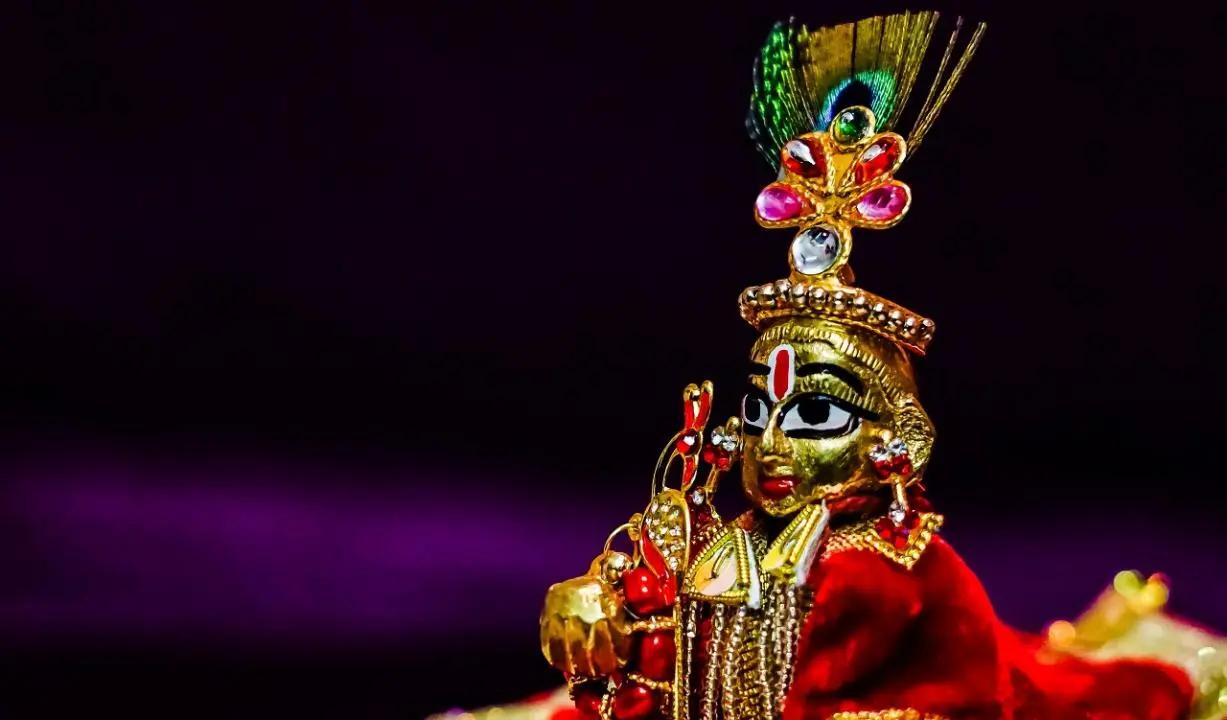Krishna Janmashtami, also known as Gokulashtami, celebrates the birth of Lord Krishna, the eighth avatar of Lord Vishnu.

Representative image/iStock
Krishna Janmashtami, also known as Gokulashtami, is one of the most happy festivals observed by Hindus around the world. This festival commemorates the birth of Lord Krishna, who is considered the eighth avatar of Lord Vishnu. Krishna Janmashtami 2024 will be celebrated on August 26. Devotees celebrate the holy birth of Krishna, who is thought to have been born to defend the world from evil and restore dharma.
The Significance of Krishna Janmashtami
Krishna Janmashtami is observed with great zeal and reverence. According to Hindu mythology, Lord Krishna was born in Mathura at midnight on the eighth day (Ashtami) of the dark fortnight, Bhadrapada. His life and teachings, as portrayed in the Bhagavad Gita and other scriptures, continue to inspire millions. Krishna is revered not only as a supernatural entity, but also for his intelligence, fun personality, and close relationship with his devotees.
Celebrations Across India
Krishna Janmashtami celebrations vary by area in India, but most feature singing devotional songs, dancing, fasting, and reading texts. The temples are magnificently decorated, and special prayers (pujas) are held to commemorate the event.
In Maharashtra, the festival is known for "Dahi Handi," a popular ritual in which groups of young men construct human pyramids to break a pot of curd dangling in the air, symbolising Krishna's passion for butter.
The festivities of Mathura and Vrindavan, where Krishna is thought to have spent his childhood, are especially magnificent. Devotees recreate scenes from Krishna's life, particularly his boyhood pranks and Ras Leela dance with the Gopis.
The Importance of Fasting on Janmashtami
Fasting is an essential aspect of the Krishna Janmashtami celebrations. Devotees fast throughout the day and night until Krishna's birth, which is supposed to occur at midnight. The fast is a technique to purify the mind and body while also demonstrating dedication and discipline in reverence of Lord Krishna.
Ahead of Krishna Janmashtami 2024, here are some dos and don'ts of fasting you should be mindful of.
Dos and Don'ts of Fasting on Krishna Janmashtami
Dos:
1. Choose the Right Type of Fast: There are various types of fasting, such as Nirjala (without water), Phalahar (fruit-based diet), and Ekadashi-style fasting (avoiding grains and cereals). Choose the type that aligns with your health and capability.
2. Stay Hydrated: If you’re not observing a Nirjala fast, ensure you drink plenty of water, coconut water, or fresh fruit juices to stay hydrated throughout the day.
3. Eat Light and Nutritious Foods: If you’re following a Phalahar fast, consume fruits, nuts, milk, and light meals made from ingredients like sabudana (tapioca) and singhara (water chestnut flour). These foods are light yet provide energy.
4. Break the Fast Properly: Once the fast is over at midnight, break it with light, easy-to-digest food to avoid any discomfort.
5. Engage in Prayer and Meditation: Spend the day in devotion by chanting Krishna’s name, reading scriptures, and meditating to keep your mind focused on the divine.
Don'ts:
1. Avoid Heavy and Spicy Foods: Refrain from eating heavy, spicy, or fried foods when breaking the fast, as they can upset your stomach after a long day of fasting.
2. Don’t Overexert Yourself: While fasting, avoid physical activities that require too much energy. Keep your tasks light and focus more on spiritual activities.
3. Avoid Negative Thoughts and Actions: The purpose of fasting is not just physical abstinence but also mental and emotional discipline. Avoid anger, gossip, and other negative behaviours.
4. Do Not Fast if You’re Unwell: If you are ill, pregnant, or have any health conditions that make fasting difficult, it’s better to abstain from fasting and instead engage in other forms of devotion.
 Subscribe today by clicking the link and stay updated with the latest news!" Click here!
Subscribe today by clicking the link and stay updated with the latest news!" Click here!










